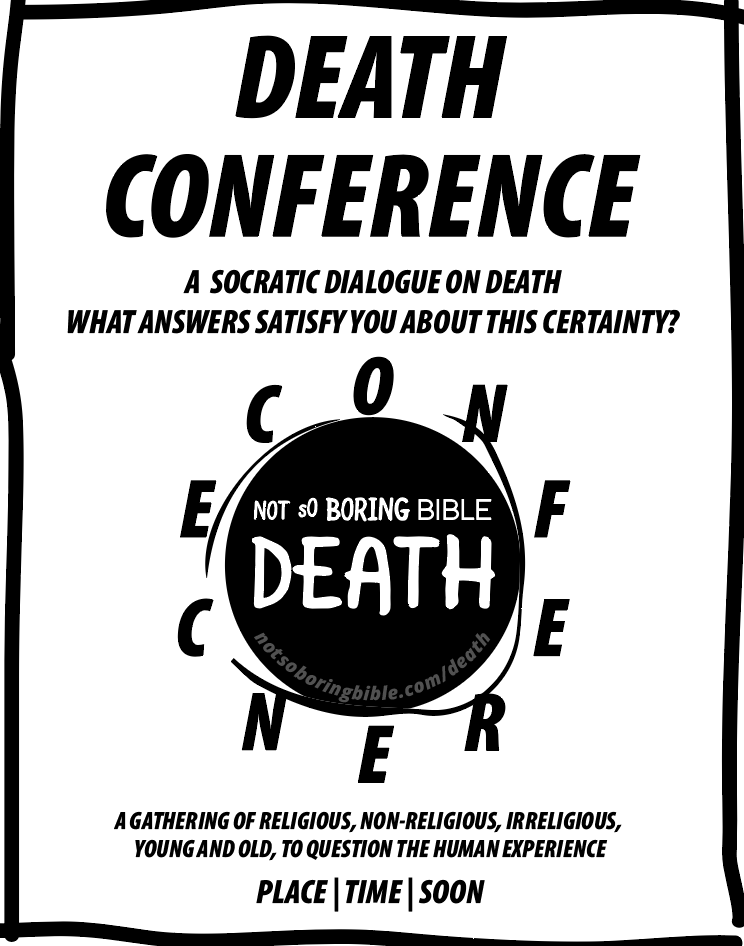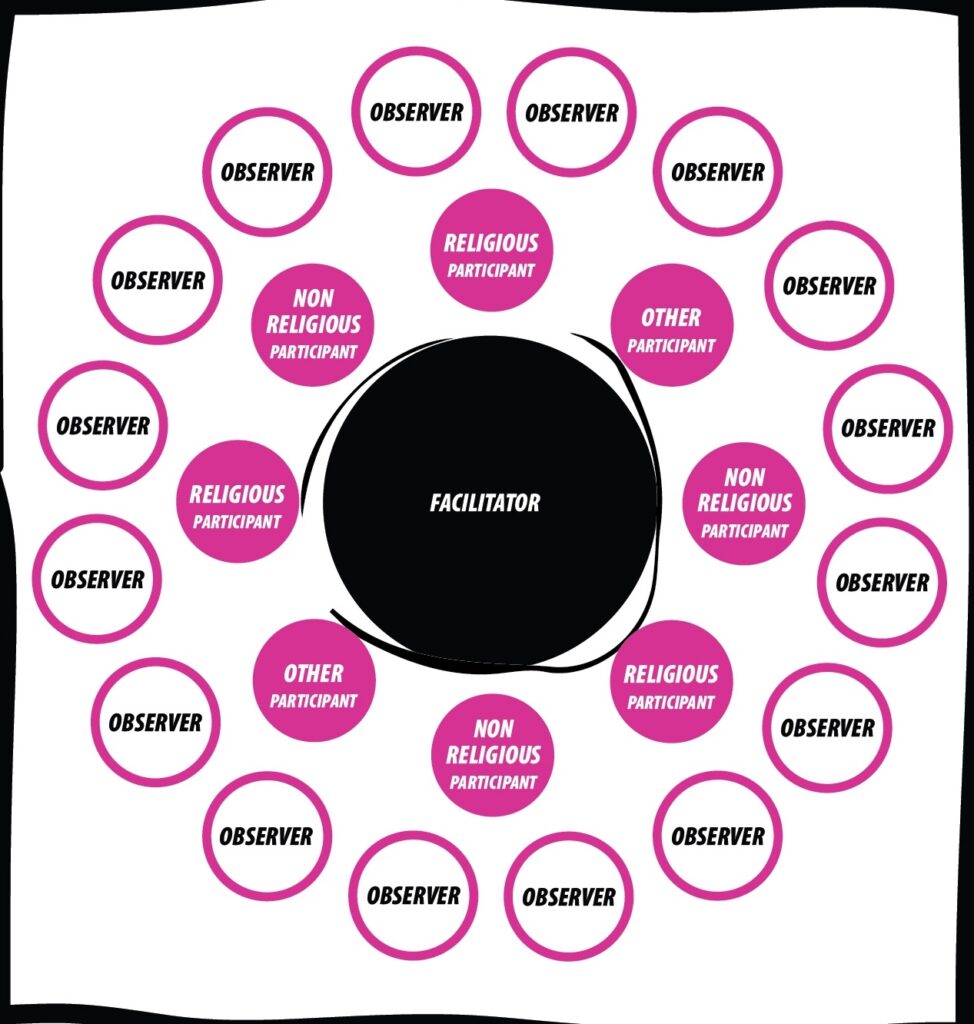Death Conference
Two things in this life are certain – death and taxes. Death will come for us all and your body will turn to dust. Those are the facts we have, and beyond that, we’re only left with our views. Is there more to death? Your response to what you think happens when you die provides an answer to how you believe you should live. Everyone believes something. (And, Tax Conference just doesn’t really have the same life changing potential to it.)
How to play: Gather a diverse group of thinkers to discuss death and the human experience. Facilitate a discussion using Socratic questions to examine and better understand what is death. NOTE: This is not a lecture to acquire knowledge from an expert (If you’re living, you’ve not died! Well, unless you’ve died and come back.) This is also not a debate to prove you are right. The goal of Death Conference is to experience a spectrum of beliefs about death and leave questioning if your own are correct. You can use these Conundrums to get the dialog started!
Why it’s important: We know death is real, but we are all guessing what happens after we die. Death Conference is an invitation to start a dialogue and disagree well. How sure are you of your answer to the question, “What happens after you die?” One day we will all know the answer, but not on this side of life. But, soon.
*DISCLAIMER AND PARTICIPANT CONTRACT: Death Conference is about sharing and talking about what we believe will happen after the thing we know will happen, we’ll die. Having not died, the participants should share a humility that they are discussing what isn’t fully known. The goal of Death Conference is to facilitate a conversation, not host a debate. Participants aren’t in the circle to speak on behalf of an entire organization, belief system, or be a representative of a specific way of thinking. The chair labels of the participants in the circle only serve to best identify the foundation of a participant’s views. It does not mean they represent the voice of that group or thinking. It can be uncomfortable to participate in the circle, because Death Conference is about sharing your own personal views about death. Participant’s words should represent their own personal thoughts and beliefs. In the circle, you are free to share how you actually feel. The facilitator and other participants can ask questions about views and statements, but aren’t to belittle or attack a view. The conversation should not be an attempt to try and convince anyone you are right, or that someone else is wrong. The point of this conversation is to hear a spectrum of views and try to better understand the conclusions others have made based on the evidence we all share – this experience of being human. For many, this will be an exercise in practicing how to talk respectfully and disagree better. We should eat, drink, and be merry, for tomorrow (or maybe today, or maybe many days from tomorrow) we die!

